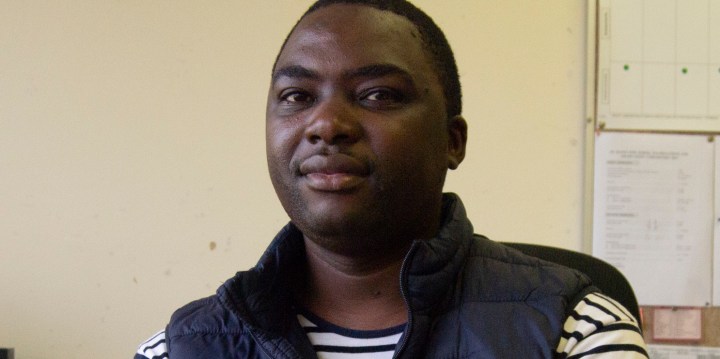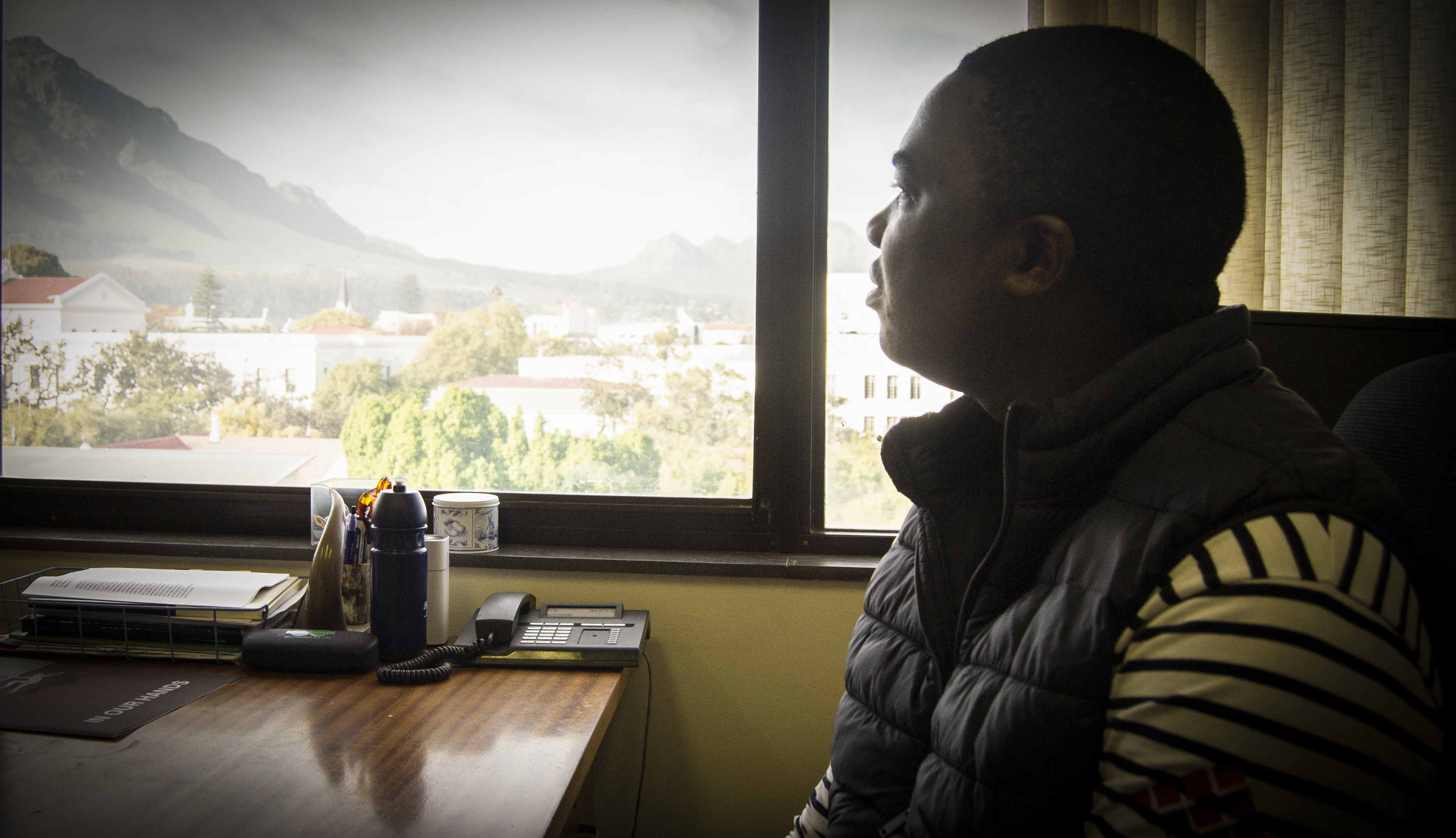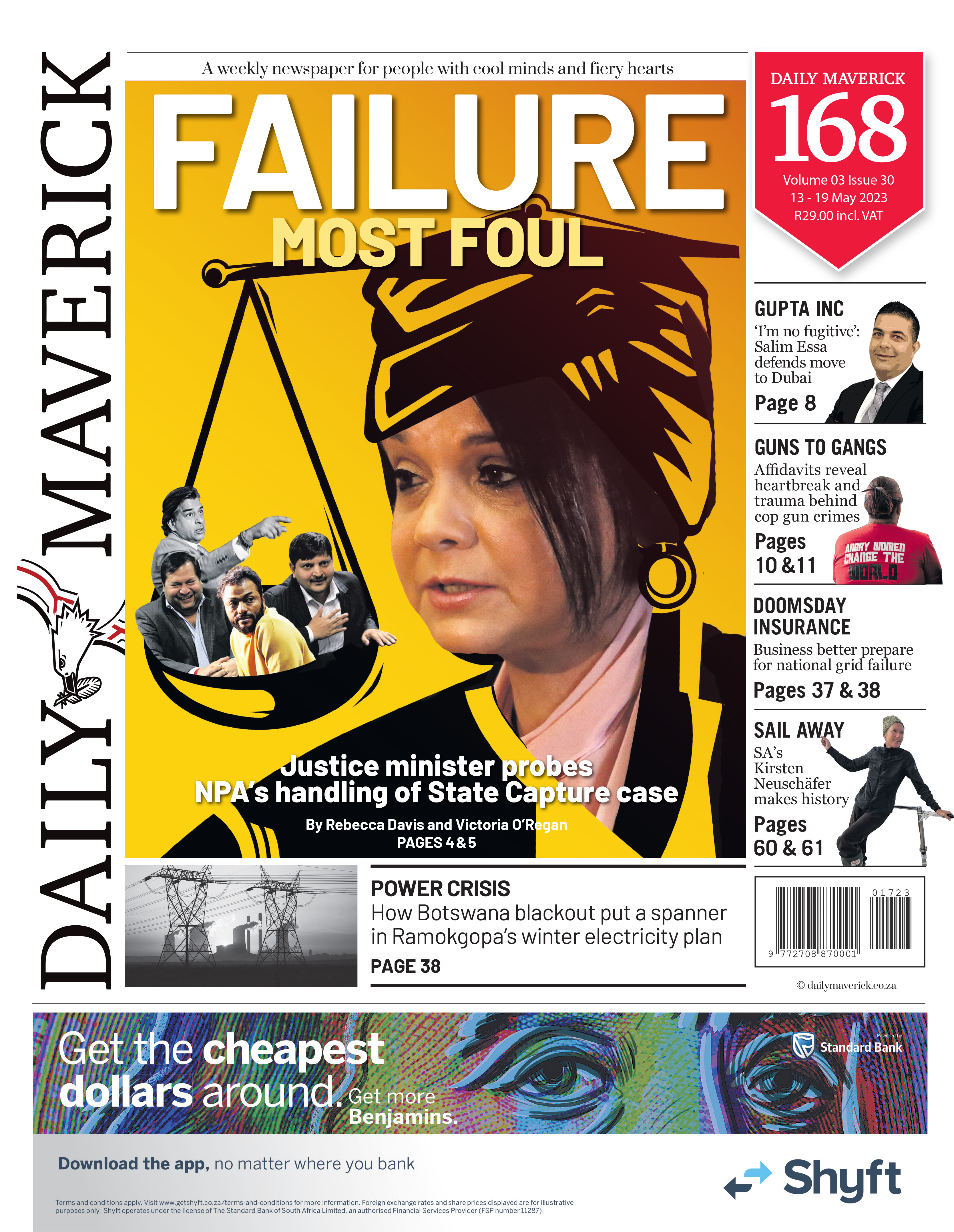FOUND IN TRANSLATION
A passion born in silence – how childhood mutism and a love of reading produced a master of languages

Until he was about six years old, Gibson Ncube did not utter a word, much to his parents’ consternation. Now he speaks seven languages, has a PhD in French and teaches it at university level.
‘I couldn’t speak for the first six years of my life, and I don’t know what was happening. My little sister, who was like two-and-a-half years younger than me, started speaking before me,” says Gibson Ncube.
Ncube, who was born in Bulawayo, Zimbabwe, teaches French at Stellenbosch University (SU) and now speaks seven languages, but as a child he suffered from selective mutism.
“It’s kind of weird. Even though I couldn’t speak as a child, I speak a couple of languages now,” he says. Ncube speaks French, English, Spanish, Portuguese, Ndebele, Shona and Sotho.
His parents took him to doctors, but there was nothing they could really do. “They said, ‘There’s nothing wrong with him, his vocal cords are okay, his listening is okay, just give him time’,” says Ncube.
Experts are unsure about the causes of selective mutism, but anxiety is considered a factor.
His parents were very concerned at the time – most toddlers start speaking at between 12 and 18 months. “I think they were quite worried to have a child that didn’t talk. I think special schools in Zimbabwe were pretty expensive. They would have had that in their minds.”
Ncube overcame the early challenges of his selective mutism, but feels it has had a lasting impact on him. When he did start talking, just before primary school, it was “just the bare minimal”, he says. “It has kind of made me the person that I am. I’m not very good with people, so I normally want to keep to myself and my books and my own thoughts.”
Academic journey
Ncube is currently a lecturer in SU’s department of modern foreign languages and has a PhD in French. As a lecturer he has administrative, research and teaching responsibilities, and coordinates the first-year French modules.
Ncube picked up the foreign languages he speaks from school and interacting with teachers, he says. Learning one language can make learning another easier, he adds. He found French particularly easy to learn. “Funnily, I found it to be the easiest subject in school, while others complained that it was difficult and foreign. I found it very interesting and easy.”
Ncube conducted the majority of his studies in Zimbabwe at the University of Zimbabwe, where he received his first degree in French and Spanish. He then chose to do his master’s in French.

Gibson Ncube is a lecturer at Stellenbosch University. (Photo: Joel Ontong)
A scholarship aimed at African graduates took him to SU to do his PhD. His study looked at queer sexualities in North African literature in French.
Ncube became one of the first two PhD students to graduate from SU’s French department in 2014 since the department’s inception. His scholarship required him to return to Zimbabwe after graduating to “put to good use the kinds of learning that you got from SU”, he says.
Read more in Daily Maverick: AI could make African languages more accessible with machine translation — but people need to make it happen
“When I finished [my PhD], I went back to Zimbabwe, where I was a lecturer. And then I did a post-doc here in Stellenbosch.”
Eventually a post was advertised at SU and he was encouraged to apply and was successful. Living in Stellenbosch, Ncube hopes to master Afrikaans next, which he thinks might be a challenge.
Ncube feels that his early mutism and love for reading played a role in his passion for language. “[Reading] was the thing I used to do most.” He read books and comics like The Adventures of Tintin, The Smurfs and Marvel comics.
His passion for teaching comes from giving other students the gift of language too. “Seeing students come into a class with zero knowledge of a language and, after just one semester, they are able to have a basic conversation. I think that is an amazing thing to watch.”
For him, this is really rewarding and he is always proud to see students go on to work for important organisations like the United Nations, using their new skills. “It makes everything worth the while.”
Differences in teaching
Having taught in South Africa and Zimbabwe, Ncube has noticed some differences between the two when it comes to education.
“So, obviously there’s the question of resources and they are different. I think here you have so many resources and access to many opportunities for funding to your research and teaching. In Zimbabwe, I think it’s different because there’s a huge lack of resources.”
He continues: “I was going to say there’s lots of load shedding, but it’s happening here as well. But when there’s load shedding in Zimbabwe, we don’t have generators running. It becomes difficult for teaching.”
Read more in Daily Maverick: How I reconstructed an unwritten ancient African language
Even though there are obstacles that a lack of resources presents to students, they still persevere. “At the same time, in Zimbabwe you’ve got students who, despite these different challenges, really push themselves to give their best. At times I’ve felt sad when students here at Stellenbosch don’t push themselves as much when they’ve got so many great resources and equipment at their disposal.”
The road ahead
Ncube recently started work on his second book, which will focus on his major research interests. These involve research in gender and queer studies, and how those are depicted in literature, film and music. His first book, Queer Bodies in African Films, was published in 2022.
Read more in Daily Maverick: Asperger’s: Greta Thunberg normalises the condition that led to exclusion of so many in the past
His new project is on the importance of touch in how people relate to each other. “The idea is normally that touch is sexualised, but I want to think of other possibilities that we can get from the way people touch each other. Especially in African contexts where people use touch to create a sense of community.”
Ncube is also happy to have been selected for the Future Professors Programme. He was identified by the Department of Higher Education and Training to participate in this project. He is finding the course enriching and hopes it will equip him effectively to become a professor. DM168
This story first appeared in our weekly Daily Maverick 168 newspaper, which is available countrywide for R29.

DM-13052023-001NEW-1




















I love this story. If we can push ourselves, we can achieve miracles.